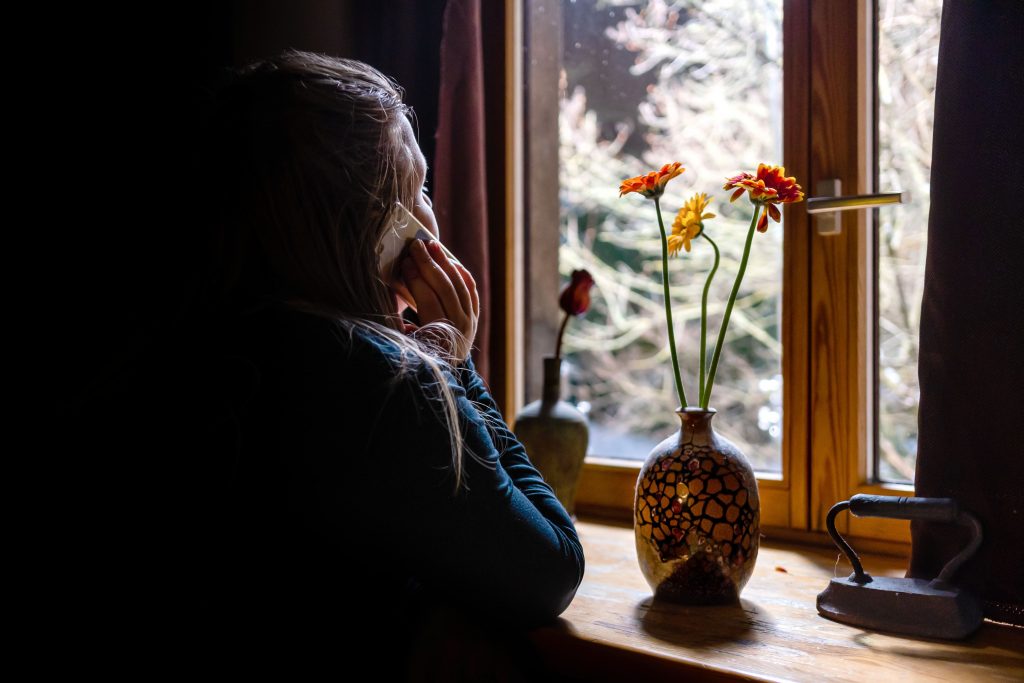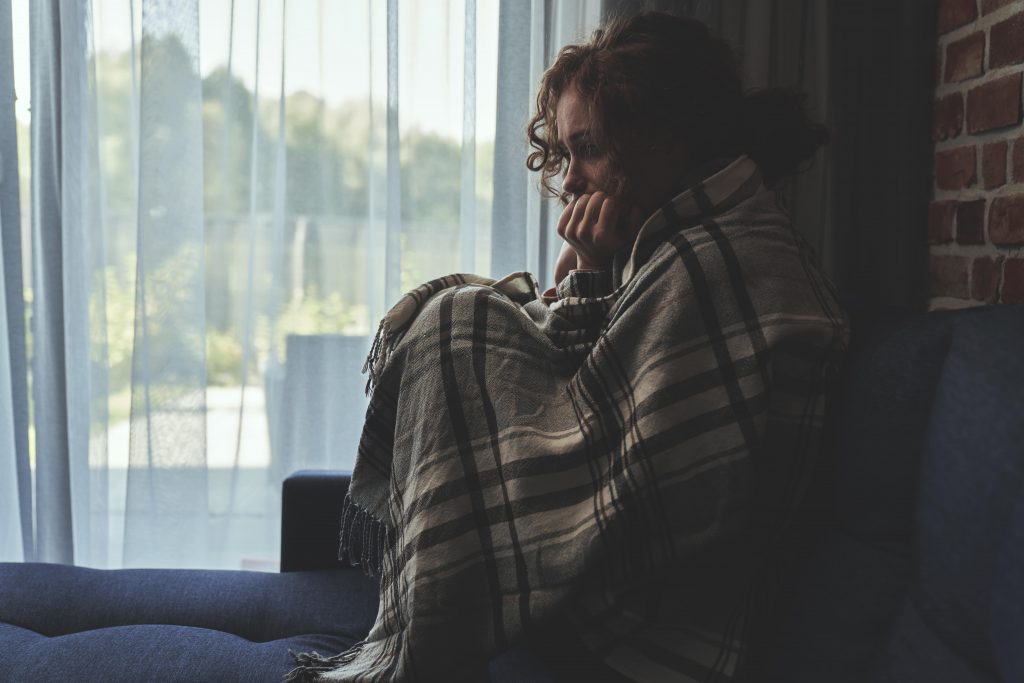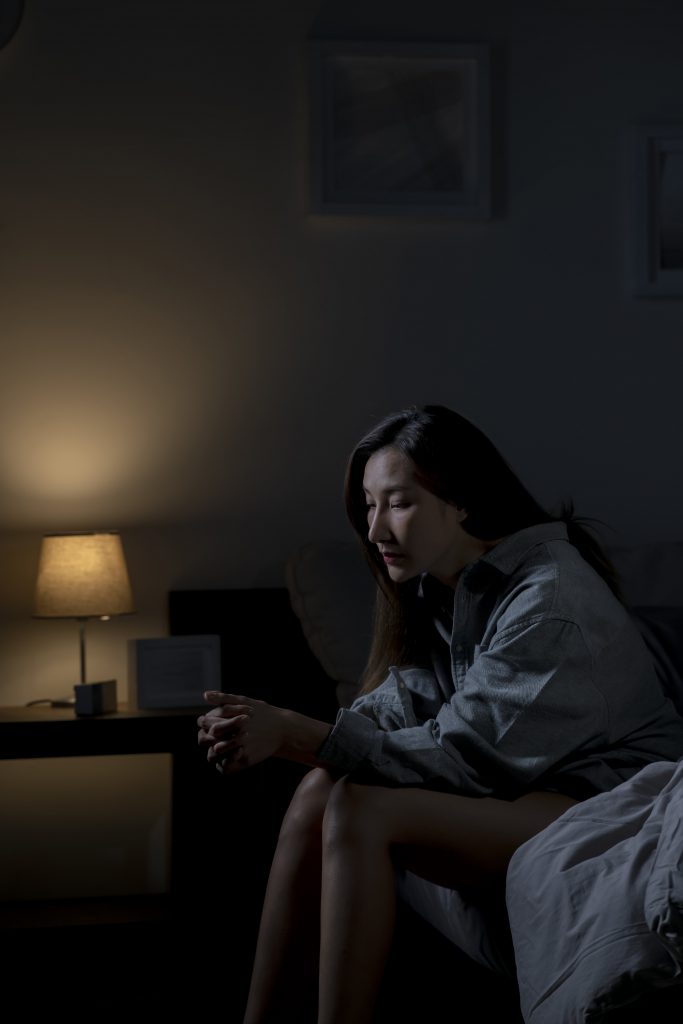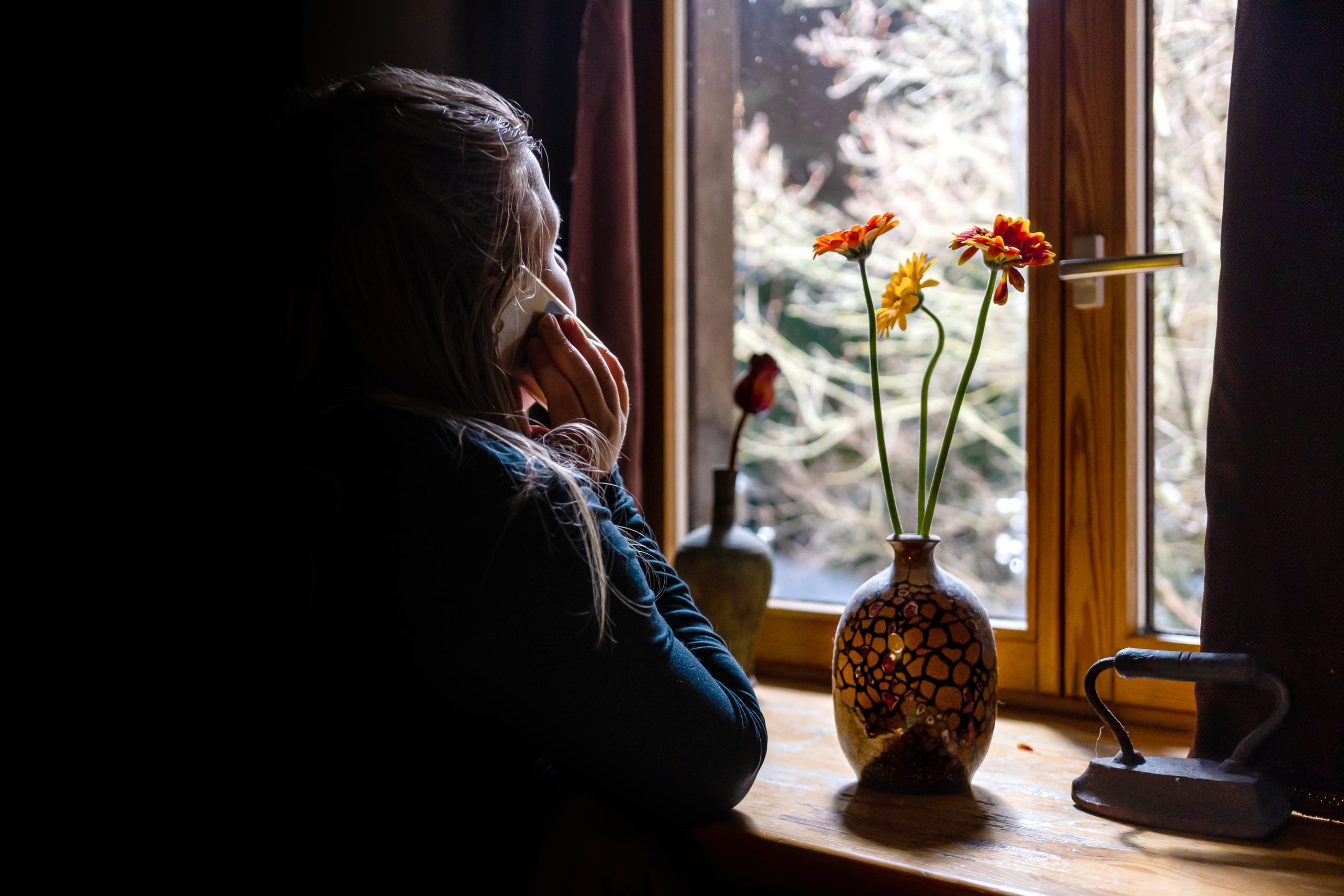What’s included?
- Introduction
- Symptoms of Seasonal Affective Disorder
- How SAD can lead to addiction
- What to do if a loved one is struggling
- How Delamere helps
Seasonal Affective Disorder (SAD) is three times more common in women than men, according to research by the Royal College of Psychiatrists.
SAD is a subtype of depression that affects a large percentage of the UK population each winter. According to Healthwatch, roughly five per cent of Brits are diagnosed with this condition at the moment, while some studies suggest that ‘winter depression’ affects almost a third of people in the country.
The clocks have just gone back, and suddenly it now feels gloomy, dark, and dreary before the working day has ended. But, for those suffering from SAD, there is more to dread about winter than the cold, dark evenings.

There is no definite cause of the effect SAD has on women, and it varies between each individual case, such as with age.
Menopause, for example, can exacerbate depression symptoms, making SAD more likely to present itself.
Furthermore, a study by Cambridge University showed that women taking the contraceptive pill are at increased risk of depression.
SAD increases the risk of struggling with addiction, as people turn to harmful substances, like illicit drugs and alcohol, to quell those symptoms. This can also be substances they have been prescribed by healthcare professionals, which is a growing issue in the UK.

Call us confidentially at any time to speak to a member of our team.
Call us now: 0330 111 2015
Symptoms of Seasonal Affective Disorder
The physiological and psychological symptoms of SAD are similar to depression, but will only arise at certain points in the year. These include:
- Changes in sleep patterns
- Anxiety and stress
- Suicidal thoughts and thoughts of self harm
- Fatigue
- Difficulty concentrating and issues with focusing
- Changes in appetite
- Low mood
There are a few ways that you can alter your routine to improve these symptoms.

With fewer daylight hours, it is more important to prioritise getting outside during periods of natural light. For some, this may look like a 30-minute walk during a lunch break, whilst for others this may be five minutes in the garden drinking your morning coffee.
Moving your body can be a great way to combat fatigue and low mood. Not only does exercise release endorphins, but it is another opportunity to get outside. A walk, run, swim or yoga sequence can be energising in the morning, and promote better sleep.
In recent years, many of those struggling with SAD have used light boxes to mimic natural light in the mornings and evenings. This solution is best combined with other treatments, such as talking therapy.
How SAD can lead to addiction
Facing any type of depression is lonely and challenging. For those without a strong support network, or those who don’t spot the early signs of addiction, this can (and does) easily lead to addiction.
Turning to alcohol or illicit substances to ease the impact of those feelings is common, particularly for those experiencing SAD.

The change in mood between seasons can be difficult to deal with, and the disruption of usual sleep patterns and diets can affect the work and personal life of someone struggling.
During the festive period, events such as office Christmas parties and get-togethers with friends can make it harder to identify when a behaviour, such as drinking alcohol, is getting out of control and is a cause for concern.
What to do if a loved one is struggling
If you notice symptoms of Seasonal Affective Disorder in a friend or loved one, there are a number of steps you can take to help. This includes, but is not exclusively, the following actions:
- Listening without judgement, and encouraging them to speak about how they are feeling;
- Make plans in advance that are not centred around alcohol. Having plans in the diary can make the weeks feel less daunting;
- Keep in contact. Whether it’s a text in the morning asking how they are, or a quick cup of tea after work, staying in touch can prevent them from feeling isolated; and
- Support them in seeking professional help.
There is also a close association between those who suffer with SAD and other mental disorders, such as bipolar. According to Nuffield Health, up to half of all people diagnosed with SAD meet the criteria for a bipolar diagnosis disorder.
These conditions can often lead to people self-medicating to cope, and then spiralling into a cycle of addiction. It is therefore increasingly important that people can spot the signs of conditions like SAD, and can take the right actions at the right time.
How Delamere helps
Delamere uses holistic therapies to help guests identify the root cause of their addiction or mental health issue.
A mixture of one-to-one and group therapy, alongside practices such as breath-work, yoga, reiki and equine therapy will support guests through their stay at Delamere.


Call us confidentially at any time to speak to a member of our team.
Call us now: 0330 111 2015








